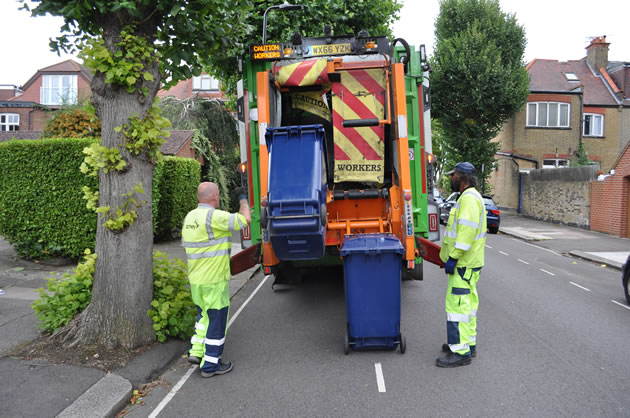Soaring Costs Could Mean Reduced Bin Collections
Transfer of Ealing's waste collection in-house proving to be expensive

As the estimated cost of bringing Ealing borough's waste collection back under council control increases, there are concerns residents could see their bins collected less frequently.
Plans for the project, which is now estimated to cost £15.8million, will return to Cabinet in September with a fully fleshed-out business plan.
The current plan is for a new Local Authority Trading Company (LATCO) to take over from the current provider, AMEY, on 4 July, and to deliver a like-for-like service with the same collection schedule.
Conservative Councillor Joanna Dabrowska called the interim report back to the Overview and Scrutiny Committee over concerns relating to the transparency of costs and the understanding of risks associated with setting up a LATCO.
She said,“With costs going up, the council may look at ways of changing the service specification.”
This could include reducing the frequency of bin collections, Councillor Dabrowska warned.
Councillor Anthony Young was also critical, pointing to the estimated number of vehicles required for the new service increasing from 47 to 53, with cost estimates jumping from £120,000 to £180,000 for some of the trucks’ leases.
The biggest contributors to the cost of the new LATCO is an estimated £14.1million in capital spending for the lease of new vehicles, and £736,000 to set up the company.
Councillor Mik Sabiers said the increased costs were driven by the realisation that many of the current provider’s vehicles were not effective, and investment was needed in more up to date models.
The increased estimates were also a result of the council getting more of a handle on the situation, Mr Sabiers said.
Brexit was also a contributor, with costs on imports likely to increase between 10 and 15% and the value of the pound likely to fall further.
In March 2018, both AMEY and the council agreed to terminate the collection service contract early. Residents shouldn’t see any disruption in service according to the council.
Mr Sabiers said increased authority over a rubbish collection service should also help the borough increase its recycling rate from the current 50%, to its target of 60%.
He said, “We are currently the second highest in London for recycling, but we still want to improve that number.”
There were also plans for the new service to expand food waste collection to more flats, many of which have to dispose of food scraps in general waste.
Ged Cann - Local Democracy Reporter
May 21, 2019
Related links
|